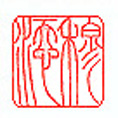— go back one page
— go back to list of extracts
— skip to next extract

‘When we have finished that, we must go along again to apply compresses of diluted tincture of marigold,’ I pointed to another jar, ‘so ask each family to be ready to prepare a compress soaked in boiling water on which we can sprinkle some of the tincture. When we have finished with this group, we can move further down the avenue.’
And so it went. The first row of victims took us what seemed a very long time, even though there were some who could not be treated, or who had already died. Then we moved on, and on again. The sun was beginning to go down.
At this point, a youngish man in proud military dress came to us. He said: ‘I am Aristocles. We are victorious!’
Antinoē looked up from the nasty stomach wound of the young man she was tending.
‘How can you speak of victory,’ she said, ‘when so many people are dead or dying or badly wounded and mutilated? And not just among the militias.’
She pointed back along the avenue. A number of women, old men and children also had been wounded, either by accidental side-blows or through the brutal zeal of fighters willing to strike at any who seemed to be on the wrong side.
The military man stiffened at Antinoē’s riposte. But he bowed, and said: ‘I came to thank you and your companions for your help to the people of Thebes. Our gratitude as soldiers, on either side, and the gratitude of all the Thebans cannot be measured. I hope that you may stay here for some time among us, so that we may in some small way show our gratitude to you in deeds.’
(4/6)